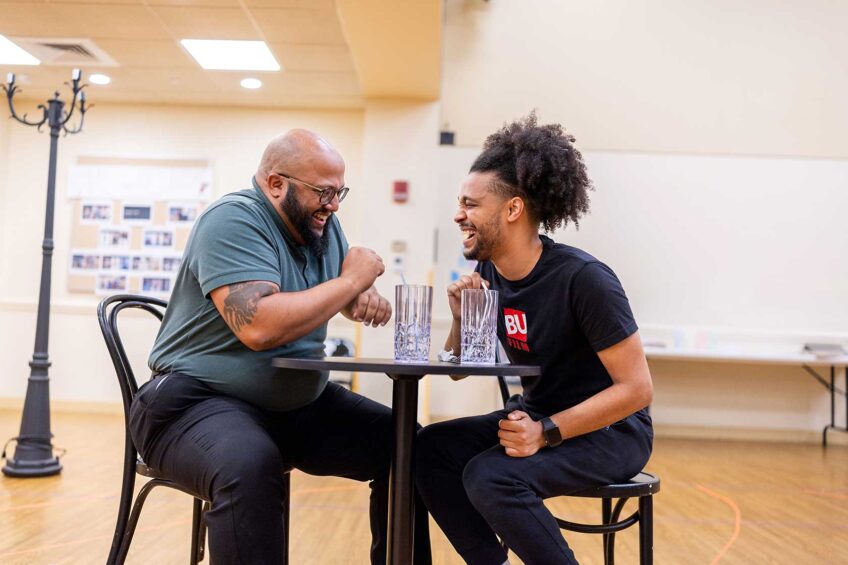‘Nickel Boys’ an experimental must-see explores the loss of innocence in Jim Crow-era Florida

Banner Arts & Culture Sponsored by Cruz Companies

Sixty-two years ago, segregation under Jim Crow was completely legal and violently enforced in the South in states like Florida. The Civil Rights Act of 1964, which would end legal segregation, wouldn’t be enacted for another two years. During this time, the Civil Rights Movement was growing and schools were reluctantly beginning to integrate. This was almost a decade after the Supreme Court case Brown v. Board of Education ruled public school segregation unconstitutional.
This tumultuous period in America’s history serves as the backdrop of RaMell Ross’ latest film, “Nickel Boys,” an adaption of Colson Whitehead’s Pulitzer Prize winning novel of the same name. Ross’ “Nickel Boys” experiments with first-person POV camera angles to make the impossible possible—letting viewers see the world as a Black teenager coming of age in 1960s Tallahassee while dealing with horrific forces beyond his control.
This beautifully stunning and heartbreaking film captures the consequences that follow a talented and gifted teenager Elwood Curtis (Ethan Herisse) en route to his first day of college. Elwood’s dream is deferred when he is a victim of being at the wrong place at the wrong time. This moment of bad luck sends him on a path from his college classes at Melvin Griggs Technical School to Nickel Academy, a segregated reform school that promises to be a place of “physical, intellectual and moral training” per its mission statement. It is no such place.
At Nickel, Elwood holds onto his hope and optimism inspired by the rhetoric and sentiment of Dr. Martin Luther King Jr. His views clash with another boy at Nickel, Turner (Brandon Wilson), who has a sober and pessimistic outlook on life both in and outside of the academy. The two eventually become friends using one another for support as their situation becomes increasingly dire.
Nickel Academy is based on the real-life Dozier School, an all-boys reform school in Florida that operated for 111 years before closing in 2011. An investigation revealed that staff would severely beat, rape, torture and occasionally murder students. A forensic archaeological report determined that more than 100 boys died at Dozier between 1900 and 1973, with three times as many Black students dying at the school than their white counterparts. Unmarked graves and more than 50 sets of human remains were also discovered on Dozier’s campus. The cause of the students’ deaths varied from fire and illness to blunt force trauma and gunshot wounds.

Brandon Wilson stars as Turner in director RaMell Ross’ “Nickel Boys” PHOTO: Courtesy of Orion Pictures
Ross’ unconventional approach to filmmaking in “Nickel Boys” allows the viewer to embody the experience of having hope slowly ripped away as one learns that honor and decency are liabilities in a place like Nickel. Nickel can be seen as a microcosm of the Jim Crow-era South. It also represents any oppressive system with little to no reward for most of the people who are subject to its whims and punishments. It is a haunting realization that no matter how a person decides to navigate a powerless situation—whether they be the optimist, the pessimist, the bully, or the bullied—childhood innocence is lost. A painful, world-weary wisdom is gained.
The evils in Nickel never leave the boys, even after their sentences are over. Familial and romantic relationships are always marred with misunderstandings and disappointments. The boys’ relationships to themselves are fractured and tense at best. Despite this, they pull from an inspirational well of resilience, perseverance and bravery as they come face-to-face with the adage that absolute power corrupts absolutely. It is this showdown of innocence vs. evil that changes the boys’ lives forever.
“Nickel Boys” opens in select theaters Dec. 20.







